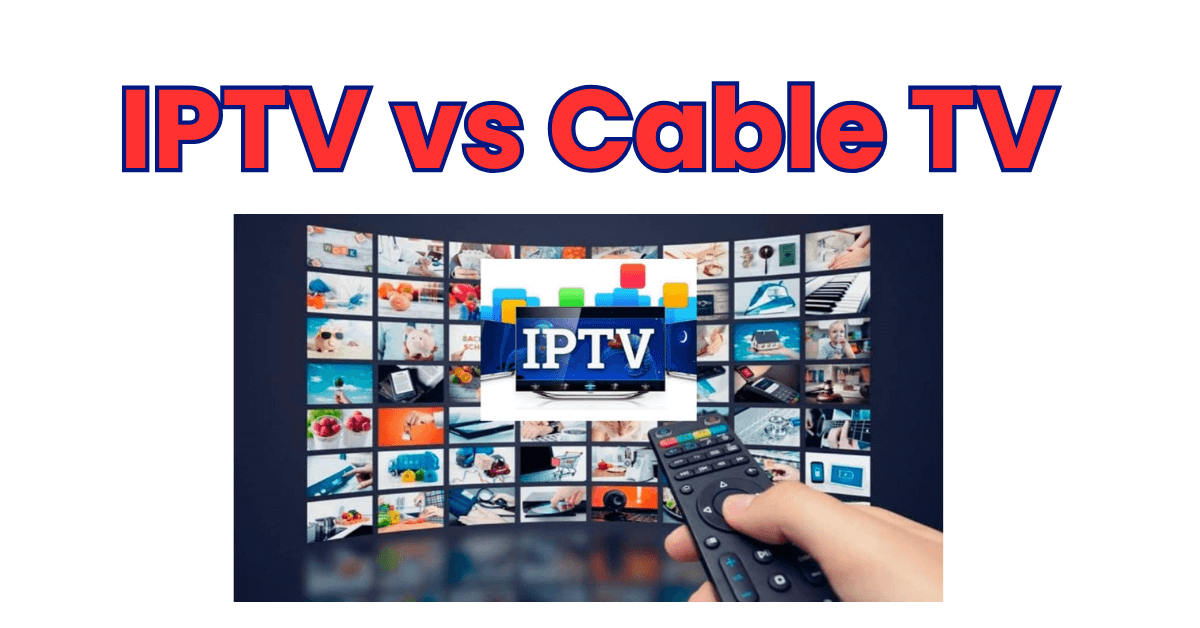
In an age where digital entertainment is evolving rapidly, understanding the differences between IPTV and Cable TV is essential for making the best choice for your viewing needs. This guide delves into the primary distinctions, benefits, and drawbacks of both IPTV and Cable TV.
What is IPTV?
IPTV (Internet Protocol Television) delivers television content over the Internet, offering users flexibility in accessing live TV channels, on-demand videos, and recorded shows. Unlike traditional broadcasting methods, IPTV relies on your internet connection.
Key Features of IPTV:
- Customizable Plans: Tailored content packages.
- On-Demand Viewing: Access to a wide range of shows and movies anytime.
- Multi-Device Compatibility: Viewable on Smart TVs, mobile devices, and computers.
- Streaming Quality: Often dependent on internet speed, with potential for high-definition and 4K content.
What is Cable TV?
Cable TV is a traditional form of television transmission that uses coaxial cables or fiber optics to deliver programming directly to a TV. It has been a staple for decades, known for consistent service and a broad range of channels.
Key Features of Cable TV:
- Stable Connection: Not reliant on internet bandwidth.
- Bundled Services: Often comes with phone and internet packages.
- Variety of Channels: Extensive selection of local and international channels.
- Equipment: Requires cable boxes or DVRs.
IPTV vs Cable TV: The Main Differences
1. Content Accessibility
- IPTV allows for flexible, on-demand viewing, letting users choose what and when to watch.
- Cable TV follows scheduled programming, with fewer options for on-demand content.
2. Cost Efficiency
- IPTV services often come at a lower cost with customizable subscriptions.
- Cable TV generally has higher monthly fees, with costs increasing for premium packages and additional channels.
3. Installation and Setup
- IPTV only requires a compatible device and an internet connection, making it easy to set up.
- Cable TV involves technician visits and physical installation of cables and boxes.
4. Quality and Reliability
- IPTV quality depends on internet speed—a fast connection can deliver 4K streaming, but slow speeds may result in buffering.
- Cable TV provides reliable, uninterrupted viewing since it’s not internet-dependent.
5. Additional Features
- IPTV offers multi-screen viewing and the ability to pause, rewind, or record live TV.
- Cable TV typically comes with DVR options but may have limited features compared to IPTV’s flexibility.
Pros and Cons: IPTV vs Cable TV
Pros of IPTV:
- Greater flexibility with viewing options.
- Cost-effective plans.
- Multi-device support.
Cons of IPTV:
- Dependent on stable, high-speed internet.
- Potential for latency or buffering.
Pros of Cable TV:
- Reliable viewing without internet dependency.
- Broad channel selection.
Cons of Cable TV:
- Higher costs.
- Limited on-demand content.
- Complex installation process.
Which is Right for You in 2025?
Choosing between IPTV and Cable TV depends on your specific needs. If you prioritize flexibility, on-demand content, and lower costs, IPTV is likely the better option. On the other hand, if you value stable service and don’t want to rely on internet speed, Cable TV remains a strong contender.
Final Thoughts
As technology continues to advance, IPTV is becoming more popular due to its adaptability and affordability. However, Cable TV still holds value for those looking for a straightforward, reliable viewing experience.
Evaluate your viewing habits, budget, and internet reliability to make the best choice for your entertainment needs in 2024.



